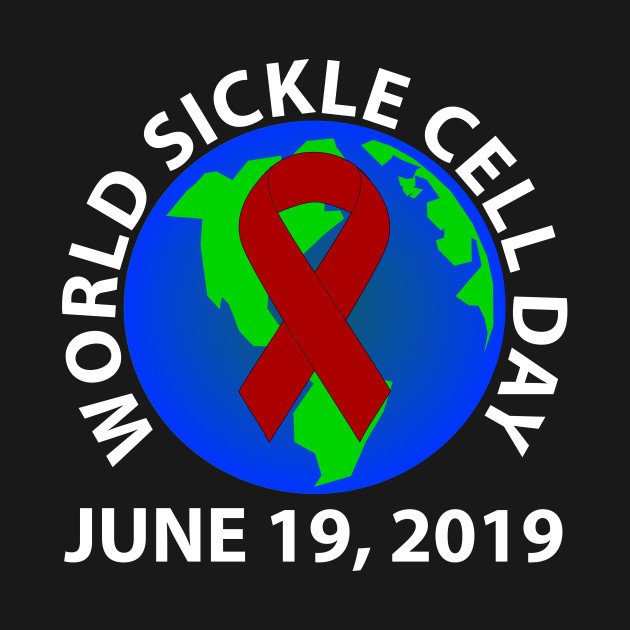19th June, World Sickle Cell Day!
Since 2008, World Sickle Cell Awareness Day has been held annually, in order to help increase public knowledge and raise awareness of Sickle Cell Disease (SCD) and the struggles sufferers and their families go through.
The date was chosen to commemorate the day on which a resolution was officially adopted by the General Assembly of the United Nations, recognising SCD as a public health concern.
World Sickle Cell Day
was celebrated first time on 19 of June in 2009.
READ ALSO: Father’s Day: It Is Not The Ability To Father A Child That Makes You A Father – Osinbajo
What is Sickle Cell Disease?
Sickle cell disease is an inherited blood disorder.
The blood cells become sickle shaped or crescent moon-shaped and have difficulty passing through blood vessels.
When vessels become blocked, oxygen and blood can’t reach bones or vital organs; this can cause severe pain and organ damage.
Children suffering from sickle cell disease are often admitted into the hospital for treatment of excruciating pain, pain that has been described as being hit with a hammer repeatedly in one area of the body.
These episodes are called “pain crises” and are very common in some people with sickle cell disease.
Sickle Cell Disorder (SCD) affects millions of people around the world, including both adults and children. It is a potentially fatal disease and according to the World Health Organization (WHO), is one of the main causes of premature death amongst children under the age of five in various African countries.
SCD currently affects about 3% of the Nigerian population.
Persons living with sickle cell Disorder are not of their own making. It was due to the genetic incompatibility of the parents.
Some health groups dedicated to SCD treatment or support hold special educational programs to commemorate the day.
However, even if you cannot attend one, you could spend the day researching the illness, learning about the symptoms and increasing your understanding of its global impact.
Nancy Chidebe
Anaedoonline
Post Disclaimer
The opinions, beliefs and viewpoints expressed by the author and forum participants on this website do not necessarily reflect the opinions, beliefs and viewpoints of Anaedo Online or official policies of the Anaedo Online.

